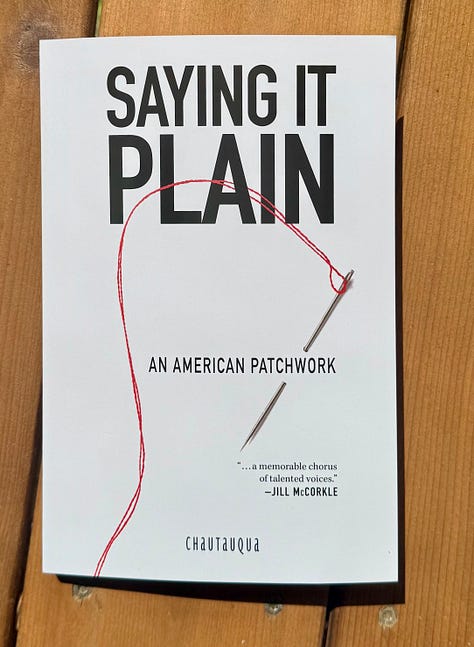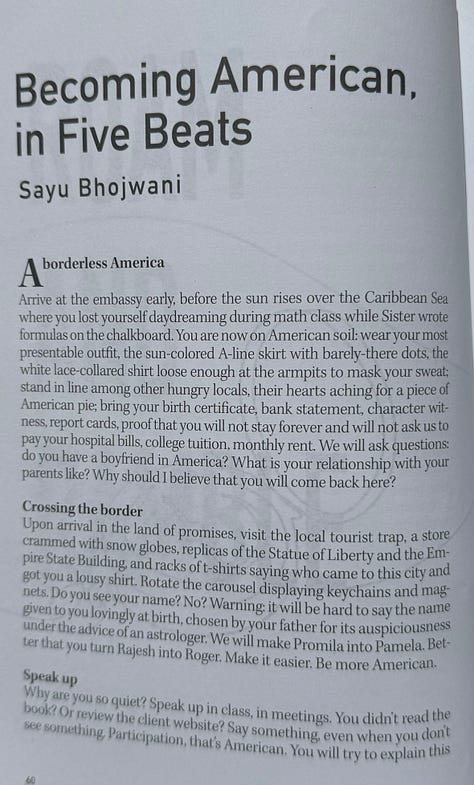Two weeks ago, at the Belize City International Airport–a bustling two-room affair filled with backpackers, Midwestern families, young adults on missions, and sun-baked tourists having their last sips of rum and coke–a man about my age walked up to me and greeted me warmly. We talked about living near each other years ago and where we lived now and what we were doing in Belize City: he had been at a family reunion and I had come for my uncle's memorial. This is a familiar experience in Belize - people recognize me because we actually know each other, or because they see something in me that reminds them of my father or my aunt, who I look more and more like as I grow older.
In New York City, I'm not used to being recognized, so I was surprised when it happened twice that same week. Once, in line at the Frick Gallery, where a student remembered me from my time as a Moynihan Leader in Residence, and again, at a gallery in Tribeca, where a South Asian filmmaker and I looked at each other several times before we finally asked, "Do I know you from somewhere?" We met briefly at a conference in 2018, a few lifetimes ago, but the sense of familiarity remained.
It's particularly poignant to experience these connections in a city that elected Zohran Mamdani–the Democratic nominee for mayor who has become the most recent public target of hate and Islamophobia. It's noticeably jarring to experience this sense of belonging at a time when every day's news reveals yet another tactic being employed by this Administration to track immigrants for the purposes of harassment, removal or causing fear. It's especially unsettling to experience a constant yo-yo of emotions in a place that is meant to be home.
Each time we leave Belize, I see the look of longing on my teenager's face, that look I recognize from the many decades of leaving a place I called home. Although they have lived in New York City since they were a baby, they too belong and don't belong to so many places. The aching that comes from leaving and returning, from not being able to return, from needing to leave – it feels lonely though I know we share it with millions of others. We are here because they were there – they the British, they the Americans, they the colonizers of all stripes.
Later that same week – the week of the cazimi – I received a copy of the anthology Saying it Plain: An American Patchwork in the mail. It includes my first creative nonfiction piece, which I wrote over a year ago and am sharing with you here; it was true then, true and will forever be true.



In solidarity,
Sayu




The clips of the essay you shared are so beautifully honest and true, and also feel very, very familiar. Thank you for posting them.